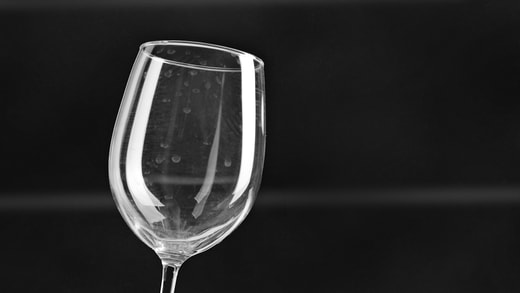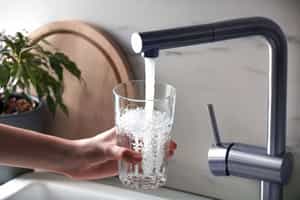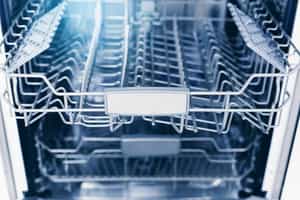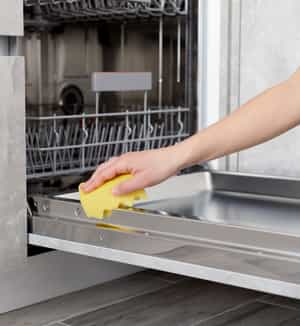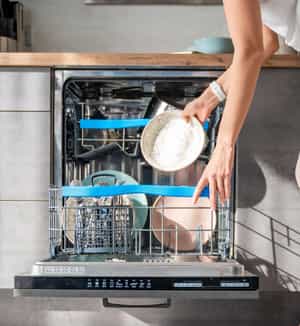You've probably heard of hard water, something that can be more or less of an issue depending on where you live and your city's water source. The good news is that hard water tends to taste good, but the bad news is that it can cause spots on glass and other surfaces. It can also build up over time in your dishwasher and affect its performance. Although it is difficult to remove hard water stains by hand, we have helpful tips on how to clean hard water build up and deposits in your dishwasher so that it continues to give your dishes the best clean every time.
What is hard water?
So, you might be wondering what is hard water. Depending on where you live, your water might travel through deposits of limestone and chalk before it reaches your tap, picking up minerals on the way. Hard water contains relatively high levels of calcium and magnesium, as well as other minerals, while soft water contains low traces of these compounds. There is no health risk associated with these minerals, but as mentioned, they can lead to hard water stains and limescale build up, as well as a reduction in your dishwasher detergent’s efficiency.
How to prevent hard water build up in the dishwasher
Although the above methods will help you to get rid of hard water build up in the dishwasher, it’s also important to prevent hard water deposits from building up in the first place. Learning how to clean a dishwasher and regularly doing so is the perfect way to do this. Learning how to clean the dishwasher filter completes the process and ensures a thorough clean. Just follow our simple steps below using Finish® Dishwasher Cleaner.
Finish® Dishwasher Cleaner
- Ensure that your machine is empty and do not use any other soap or detergent.
- Remove the sticker from the bottle but keep the wax plug intact. Place the bottle upside down on the bottom rack.
- Close the door and set the machine on its hottest cycle. The liquid will automatically be released as the wax plug melts.
- Once the cycle is done, remove the bottle, recycle it and your dishwasher will be at its optimum efficiency.
- Repeat once a month after regular use.
How to remove limescale from a dishwasher
When dishwashers are exposed to hard water, it can cause cloudy glasses and limescale build up. Luckily, you don't have to resort to scrubbing. To help get rid of hard water build up or deposits in a dishwasher, there are a few simple solutions that you can use.
Finish® Jet-Dry Hardwater
You can also use Finish® Jet-Dry Hardwater rinse aid to tackle the water spots and film that come with hard-water stains. For sparkling dishes, glasses and utensils, just follow these steps.
- Fill your rinse aid dispenser with Finish® Jet-Dry Hard Water rinse aid and wipe up any spilled product.
- Finish® Jet-Dry Hardwater is automatically released in the rinse cycle every time your dishwasher runs.
- We would recommend refilling monthly for the best results – or whenever your dishwasher notifies you through an indicator light
Finish® Hard Water Detergent Booster
Finish® Hard Water Detergent Booster works alongside your normal detergent to tackle limescale and hard water build up. Finish® Hard Water Detergent Booster can be added to your dishwasher cycle at will, whenever you notice cloudy marks on your dishes and glassware.
- Check whether your dishwasher has a built-in pre-rinse chamber, which is usually located near the detergent cup(s).
- Fill your pre-rinse chamber with Finish® Hard Water Detergent Booster and wipe up any spilled product. If your machine doesn’t have a pre-rinse chamber, simply pour two tablespoons of Finish® Hard Water Detergent Booster into the bottom of the dishwasher.
- We recommend doing this monthly for the best results.
Removing hard water stains is an important step in dishwasher maintenance and to help your dishes and glasses come out clean and shiny.

